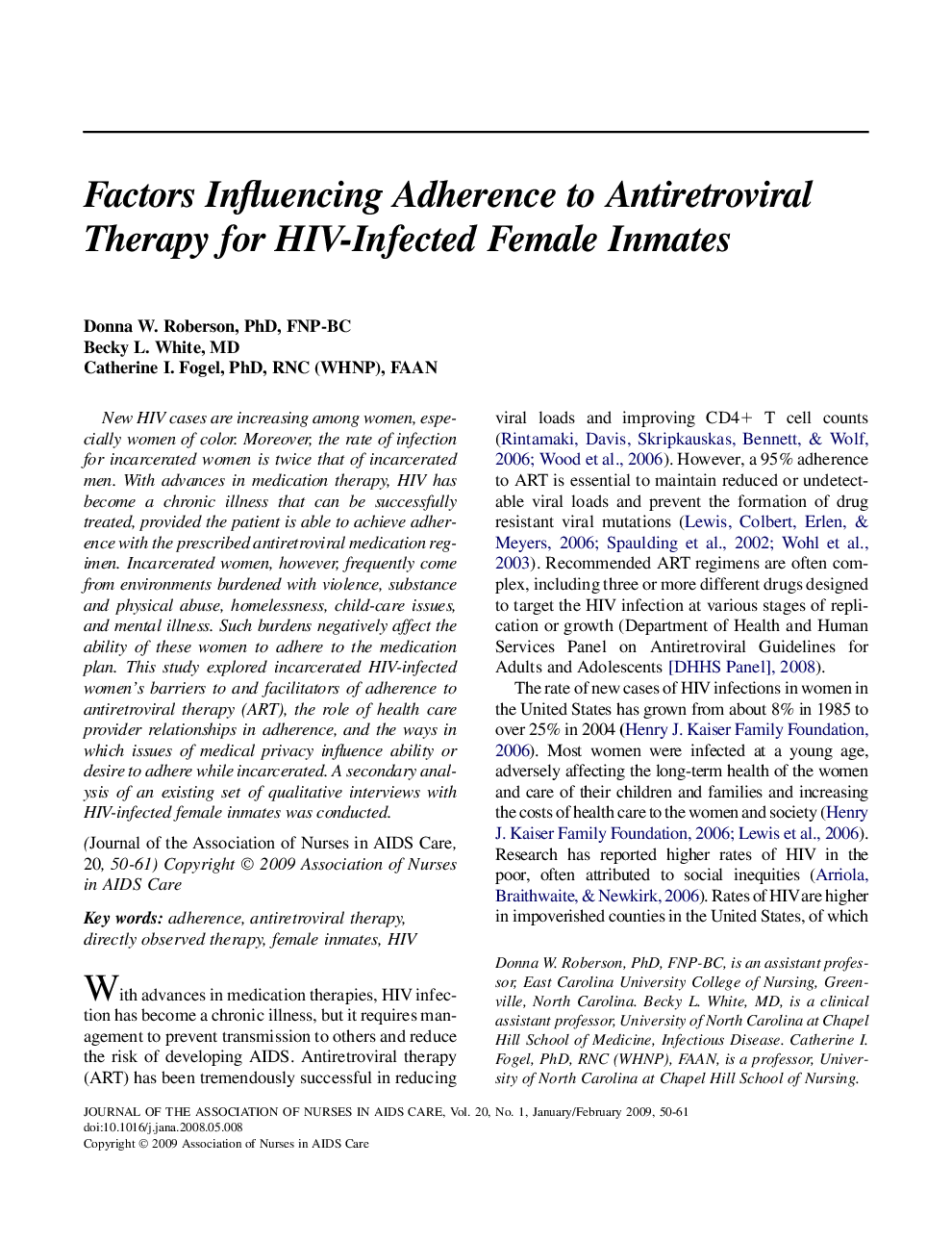| Article ID | Journal | Published Year | Pages | File Type |
|---|---|---|---|---|
| 2658963 | Journal of the Association of Nurses in AIDS Care | 2009 | 12 Pages |
New HIV cases are increasing among women, especially women of color. Moreover, the rate of infection for incarcerated women is twice that of incarcerated men. With advances in medication therapy, HIV has become a chronic illness that can be successfully treated, provided the patient is able to achieve adherence with the prescribed antiretroviral medication regimen. Incarcerated women, however, frequently come from environments burdened with violence, substance and physical abuse, homelessness, child-care issues, and mental illness. Such burdens negatively affect the ability of these women to adhere to the medication plan. This study explored incarcerated HIV-infected women's barriers to and facilitators of adherence to antiretroviral therapy (ART), the role of health care provider relationships in adherence, and the ways in which issues of medical privacy influence ability or desire to adhere while incarcerated. A secondary analysis of an existing set of qualitative interviews with HIV-infected female inmates was conducted.
